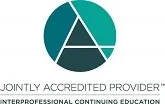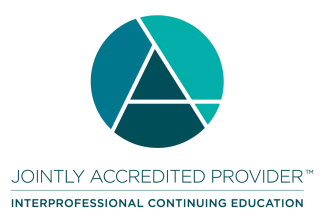Patient Safety Executive Development Program
View an Informational Call with Patient Safety Executive faculty and staff.
View Info Call [Recorded May 7, 2025, 11:00 AM ET]
Please review our Cancellation Policy
*Prices are listed in USD
Overview
The program supports health care career advancement and organizational goals for patient safety leadership. Offering a blend of virtual and in-person sessions, the Patient Safety Executive Program emphasizes peer-to-peer learning and collaboration, allowing participants to develop keen and thorough understanding through expert guidance, while building the strategic, clinical, and operational knowledge necessary to deliver safer, more reliable patient care.
Uniting the expertise of clinicians from around the world with IHI’s renowned faculty and leaders in patient safety, the Patient Safety Executive Program is dynamically structured to provide participants with exceptional value via a curriculum founded on evidence-based instruction and proven, real-world insights.
Upon completion, participants will have the tools, knowledge, and lasting professional connections to drive meaningful, system-wide improvement in patient safety across various health care settings, including acute care, ambulatory care, home care, long-term care, community care, and military settings.
Early Registration is Crucial: To ensure a seamless experience, we strongly encourage participants to confirm their attendance well in advance of the program's start date on September 9. Early registration allows for the development of tailored materials, completion of program preparation activities, and finalizing necessary logistical arrangements to ensure every attendee receives the full benefit of this comprehensive program.
“[This program] helps people understand their full responsibilities as patient safety leaders. Attendees consider it a transformational experience. They bring the inspiration back to the organization and continue to live it.”
Barbara Crawford, RN, MS
Kaiser Foundation Health Plan & Hospitals
Watch an Informational Call:
Get an inside view of this executive-level program! Learn what to expect in the upcoming program from faculty and staff, and hear a question and answer session with call participants.
Call recorded May 7, 2025.
Making the Case: Download the 2025 Justification Letter template to provide high-level information on the PSE program to your leadership.
Session Agenda
Download agenda information for the 2025 Patient Safety Executive Professional Development Program.
Continuing Education
In support of improving patient care, the Institute for Healthcare Improvement is jointly accredited by the Accreditation Council for Continuing Medical Education (ACCME), the Accreditation Council for Pharmacy Education (ACPE), and the American Nurses Credentialing Center (ANCC), to provide continuing education for the healthcare team.
This program is approved to provide 50 credits for physicians, nurses, pharmacists, and Certified Professional in Patient Safety (CPPS) recertification.
The Institute for Healthcare Improvement designates this live activity for a maximum of 50 AMA PRA Category 1 Credits™. Physicians should claim only the credit commensurate with the extent of their participation in the activity. This activity may also be applicable for other professions that accept AMA PRA Category 1 Credits™. This live activity includes required support activities delivered asynchronously. Participation in these components is necessary to meet the learning objectives and is included in the total credit hours.
A growing list of countries accept ACCME-accredited education.
Planning Committee:
- Frank Federico, Former Vice President, IHI & Senior Safety Expert
- Jessica Behrhorst, MPH, CPPS, CPQH, CPHRM, Faculty and Former Senior Project Director, IHI
- Lauge Sokol-Hessner, MD, CPPS, Clinical Associate Professor of Medicine, University of Washington and Harborview Medical Centers
- Britney Pierre, RN, MAS, BSN, Senior Project Manager, IHI
- Katherine Rowbotham, MA, Director of Accreditation, IHI
Disclosure: None of the planners, presenters, or staff for this educational activity have relevant financial relationship(s) to disclose with ineligible companies whose primary business is producing, marketing, selling, re-selling, or distributing healthcare products used by or on patients.
To be eligible for a continuing education certificate, attendees must complete the online evaluation within 30 days of the continuing education activity. After this period, you will be unable to receive a certificate.
Continuing education credits will not be awarded for non-educational activities, including (but not limited to) meals, breaks, and receptions.
Fees
Regular Price: $10,750 USD
Groups of 3 or more: $9,137.50 USD
GSA Pricing For US Government
IHI offers GSA pricing for US government employees to enroll in this educational program. For more information and pricing, see IHI's GSA schedule.

Scholarships
IHI is pleased to offer a limited number of 15%, 25%, and 50% scholarships to assist with program registration costs for those working in:
- Independent, United States Federally Qualified Health Centers (FQHCs) that are not affiliated with a hospital or health system
- Critical Access Hospitals
- Independent practices with fewer than 20 physicians
- Hospitals with fewer than 50 beds
- Members of America's Essential Hospitals
- 501(c)(3) organization with a defined operating budget of less than $5 million, serving community-based populations
- Ministries of Health
- Faith-based health institutions
- Skilled Nursing Facilities
All Scholarships are reviewed on an individual basis. If multiple individuals from the same organization wish to apply for a scholarship, each individual must submit an application. Group discounts are also available, see information above.
To apply for a scholarship, please complete the online Scholarship Application by Friday, August 8, 2025. IHI will notify all applicants of their scholarship status by Friday, August 15, 2025.
To ensure equal distribution of funds, all scholarship applications are reviewed using the same scoring criteria. All awarded amounts are final.
Please note, scholarships are available for program registration costs only, and do not cover travel, food, or accommodation costs associated with attending a program.
IHI may, at its discretion, cancel, postpone, or otherwise modify in-person programs at any time, with or without notice. If IHI does so and as a result, a registrant is unable to participate in the program, IHI will refund the registration fee. The registrant, however, will remain responsible for other costs (such as travel and lodging) the registrant incurs in connection with the program, and IHI will not refund the registrant, nor otherwise be responsible for, such costs. Registrants should proceed accordingly and consider travel/lodging cancellation policies — as well as purchasing travel insurance — when incurring such costs.
Logistics
Location
Institute for Healthcare Improvement
53 State Street
18th Floor
Boston, MA 02109
United States
Recommended Hotels
Download a list of recommended hotels and discounts for the Patient Safety Executive Program.















